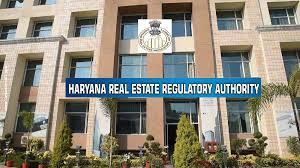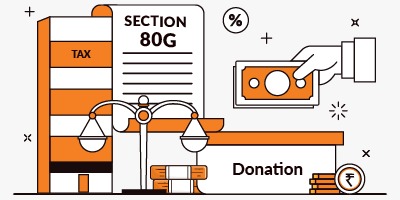S. Ravindra Bhat, J.@mdashThe plaintiff sues the defendants in this summary suit, seeking a decree for Rs. 20,05,950/- along with pendent lite and future interest at 24% per annum.
2. The suit is premised upon certain transactions, which are said to have occurred between the plaintiff and defendants. The plaintiff contends having supplied goods (to wit) toners, required for Photostat, Xerox machines. It is submitted that the goods were purchased by the first defendant, who is also the proprietor of the second defendant concern. According to the suit contentions, the defendants had approached the plaintiff for appointment as super-stockist/wholesale dealers, which request was declined. It is stated that the plaintiff indicated the terms of the supply of goods, which included inter alia the stipulation that the defendants were to pay the billed amount within seven days of receipt of materials and that interest @ 2% per month would be charged in the event of delayed payment or non-payment. The suit alleges that a series of transactions in terms of this understanding took place, and alleges to an arrangement whereby the defendants started to delay the payment from 30.06.2004. According to the allegations, the defendants defaulted in payment on 10 invoices, details of which are set-out in para 7. They are as follows:
---------------------------------------------------------------------- S. No. Date of Purchase Invoice No. Amount ---------------------------------------------------------------------- 1. 31.07.2004 859 Rs. 2,30,000/- ---------------------------------------------------------------------- 2. 31.07.2004 860 Rs. 1,43,750/- ---------------------------------------------------------------------- 3. 31.07.2004 861 Rs. 1,72,500/- ---------------------------------------------------------------------- 4. 31.07.2004 862 Rs. 1,43,750/- ---------------------------------------------------------------------- 5. 31.07.2004 863 Rs. 1,72,500/- ---------------------------------------------------------------------- 6. 31.08.2004 1202 Rs. 1,43,750/- ---------------------------------------------------------------------- 7. 31.08.2004 1208 Rs. 28,750/- ---------------------------------------------------------------------- 8. 31.08.2004 1209 Rs. 1,43,750/- ---------------------------------------------------------------------- 9. 31.08.2004 1210 Rs. 1,43,750/- ---------------------------------------------------------------------- 10. 31.08.2004 1211 Rs. 1,43,750/- ---------------------------------------------------------------------- Total Rs. 14,66,250/- ----------------------------------------------------------------------
3. The plaintiff submits that the defendants had issued 14 cheques, out of which 11 were dishonored. The cheques that were dishonored are set-out in para 11. They are indicated in the following terms:
------------------------------------------------------------------ S. No. Cheque No. Drawn on Date Amount Rs. ------------------------------------------------------------------ (a) 377586 ICICI Bank 29.01.2005 1,00,000.00/- ------------------------------------------------------------------ (b) 377587 ICICI Bank 05.02.2005 1,00,000.00/- ------------------------------------------------------------------ (c) 377588 ICICI Bank 12.02.2005 1,00,000.00/- ------------------------------------------------------------------ (d) 377589 ICICI Bank 19.02.2005 1,00,000.00/- ------------------------------------------------------------------ (e) 377590 ICICI Bank 26.02.2005 1,00,000.00/- ------------------------------------------------------------------ (f) 377591 ICICI Bank 05.03.2005 1,00,000.00/- ------------------------------------------------------------------ (g) 377592 ICICI Bank 12.03.2005 1,00,000.00/- ------------------------------------------------------------------ (h) 377593 ICICI Bank 19.03.2005 1,00,000.00/- ------------------------------------------------------------------ (i) 377594 ICICI Bank 26.03.2005 1,00,000.00/- ------------------------------------------------------------------ (j) 377595 ICICI Bank 02.04.2005 1,00,000.00/- ------------------------------------------------------------------ (k) 377596 ICICI Bank 09.04.2005 1,00,000.00/- ------------------------------------------------------------------ (l) 377597 ICICI Bank 16.04.2005 66,250.00/- ------------------------------------------------------------------ Total 11,66,250.00/- ------------------------------------------------------------------
4. The plaintiff refers to a Legal Notice issued to the defendants on 10.06.2005 under Regd. Post A.D. cover, which did not elicit any response. In support of the suit, the plaintiff has filed certain copies of the relevant invoices, and cargo receipts, said to have been issued by M/s. Andhra Cargo Services (transporters, who are alleged to have delivered the goods to the defendants), a copy of the legal notice, dated 10.06.2005 and certified copy of the Regd. Post A.D. card. It is argued that the application preferred by the defendants does not disclose any triable issue and the substantial contentions put forward by them pertain to non-receipt of the notice; a disclaimer of the first defendant vis-�-vis any dealing with the second defendant, and lastly that the cheques were issued to the plaintiff towards the loan said to have been disbursed to a third party, Mr. Poonam Rathi. It is argued that none of these contentions disclose any triable issue that entitles defendants to any relief, much less the leave to defend the suit.
5. The defendants in the application for leave to defend (I.A. No. 635/2008), on the other hand, submit that the suit is singularly bereft of any particulars as to the supply of the goods alleged. The defendants completely deny the transactions underlying the cheques, which are subject matter of the suit (for which the plaintiff has also apparently moved criminal Courts in Delhi, alleging commission of offences punishable u/s 141 of the Negotiable Instruments Act, 1882). It is argued on behalf of the defendants that a comparison between invoices, which are placed on the record and relied upon in the suit discloses that the alleged transactions took place between 31.07.2004 and 31.08.2004, whereas the cargo receipts pertained to a previous period. Learned Counsel submits that no explanation is forthcoming in this regard by the plaintiff. It is further emphasized that the cargo receipts do not itself evidence anything except the documents alleged to have been issued. The defendants submit that there is no material to suggest that the alleged goods ever reached them or were accepted by anyone on their behalf.
6. The principles on which the Court decides whether to grant or refuse leave to a litigant to contest in a summary suit had been indicated in a decision of the Supreme Court in
XXXXXX XXXXXX XXXXXX
a) If the defendant satisfies the Court that he has a good defence to the claim on merits, the defendant is entitled to unconditional leave to defend.
b) If the defendant raises a triable issue indicating that he has a fair or bona fide or reasonable defence, although not a possibly good defence, the defendant is entitled to unconditional leave to defend.
c) If the defendant discloses such facts as may be deemed sufficient to entitle him to defend, that is, if the affidavit discloses that at the trial he may be able to establish a defence to the plaintiff''s claim, the court may impose conditions at the time of granting leave to defend the conditions being as to time of trial or made of trial but not as to payment into Court or furnishing security.
d) If the defendant has no defence, or if the defence is sham or illusory or practically moonshine, the defendant is not entitled to leave defend.
(e) If the defendant has no defence or the defence is illusory or sham or practically moonshine, the Court may show mercy to the defendant by enabling him to try to prove a defence but at the same time protect the plaintiff imposing the condition that the amount claimed should be paid into Court or otherwise secured.
XXXXXX XXXXXX XXXXXX
7. Having regard to the above principles, the Court has to discern whether the defendants'' arguments having existence of more than one triable issue is prima facie tenable. The plaintiff has, in support of the suit, filed on record certified copies of concerned cheques alleged to have been dishonored by the defendants; copies of the bank invoices and the statement of accounts reflecting the books of accounts maintained by it. It also places reliance on invoices of the relative cargo receipts issued by the alleged courier. So far as the receipt of the legal notice is concerned, the judgment of the Supreme Court in K. Bhaskaran v. Sankaran Vaidhyan Balan and Anr. 1997 (7) SCC 510, in this Court''s opinion, concludes the issue. The first defendant''s plea of having no connection with the second defendant concern and a later contention made in the rejoinder to the leave to defend application that the price indicated is something less, is not credible, to say the least. The contention in the affidavit in support of the leave to defend application is that the address of the first defendant is 26, Aziz Mulk, 1st Street, Thousand Lights, Chennai 600 006. The plaintiff has annexed certified copies of Regd. Post A.D., under cover of which legal notice is said to have been issued, as Ex. P-1/17, P-1/17A and P-1/17B. On an application of principles indicated in K. Bhaskaran (supra), the logical consequence is that the first defendant''s disclaimer about no connection with the second defendant is untenable and the Court has to conclude that the notice was also issued in this regard and validly received by virtue of presumption, which becomes operative u/s 27 of the General Clauses Act, 1897.
8. As far as the substantive plea of the defendants, i.e. that the plaintiff has not disclosed any material to say that the goods were actually supplied, is concerned, the plaintiff''s contention here is that the defendants have not challenged the issue of three cheques that were honored. The defendants, on the other hand, contend that all the cheques were issued in relation to an alleged loan. Viewed from the totality of the circumstances, the Court is of the opinion that the defendants'' plea, having regard to the non-receipt of any goods, as alleged by the plaintiff cannot be considered as insubstantial. No doubt, the plaintiffs have placed on record invoices, as well as cargo receipts. But these by themselves, in the Court''s opinion, do not establish anything except the existence of such documents or that they were issued by the plaintiff and the concerned carrier. It is not as if the carrier in this case has certified that the goods were delivered and had in fact been received by the consignee, i.e. defendant or either of them. In the absence of such material, and in the context of the defendants'' denial of the entire transaction and the specific denial about the receipt of goods, the Court discerns elements of triable issues as to whether goods were indeed received by the defendants.
9. In view of the above conclusion, the Court is of the opinion that even though there is not material prima facie at the moment to suggest that the case of loan put forward by the defendants is credible, yet the defendants in this case cannot be styled as setting-up a "sham" case or "moonshine" as understood within the formulation of the Supreme Court in Mechelec Engineers & Manufacturers (supra). The Court is further of the opinion that having regard to the circumstances and the facts as presented today, the defendants are entitled to leave but on imposition of certain conditions. Accordingly, the defendants are granted leave to defend subject to the condition that they shall deposit a sum of Rs. 8,00,000/- in the Court, within six weeks from today. An affidavit of compliance shall be filed simultaneously. The Registrar of this Court is directed to keep the said amount in an interest bearing Fixed Deposit, to be renewed periodically from time to time subject to further orders of this Court. I.A. No. 635/2008 is allowed. The defendants are permitted leave to defend in the suit, in the above terms.
CS(OS) 230/2008
The defendants shall file written statement within the time specified in the CPC (CPC), i.e. four weeks. Replication, if any, shall be filed four weeks thereafter. The parties are directed to file documents and indicate admission/denial thereto, by exchanging affidavits, within ten weeks from today. List before the Joint Registrar on 24.05.2010, for scrutiny.
List before the Court on 07.12.2010, for framing issues.

